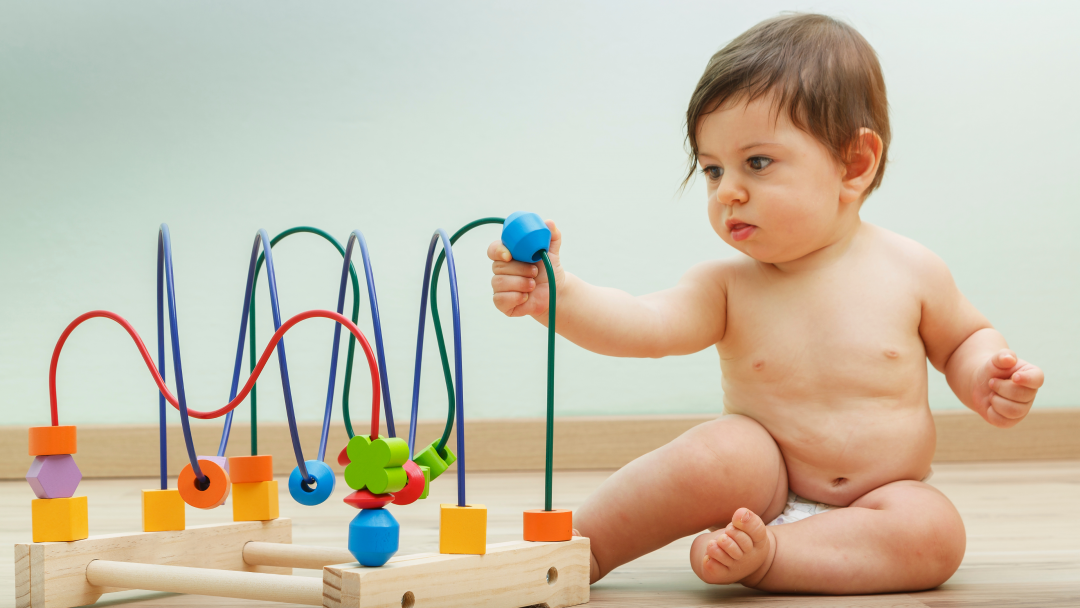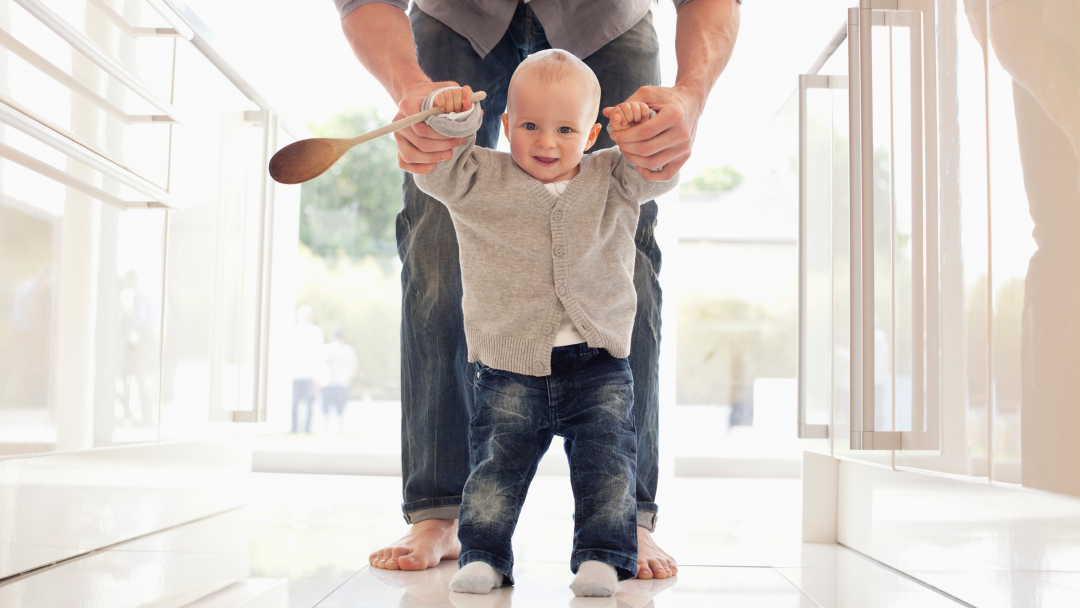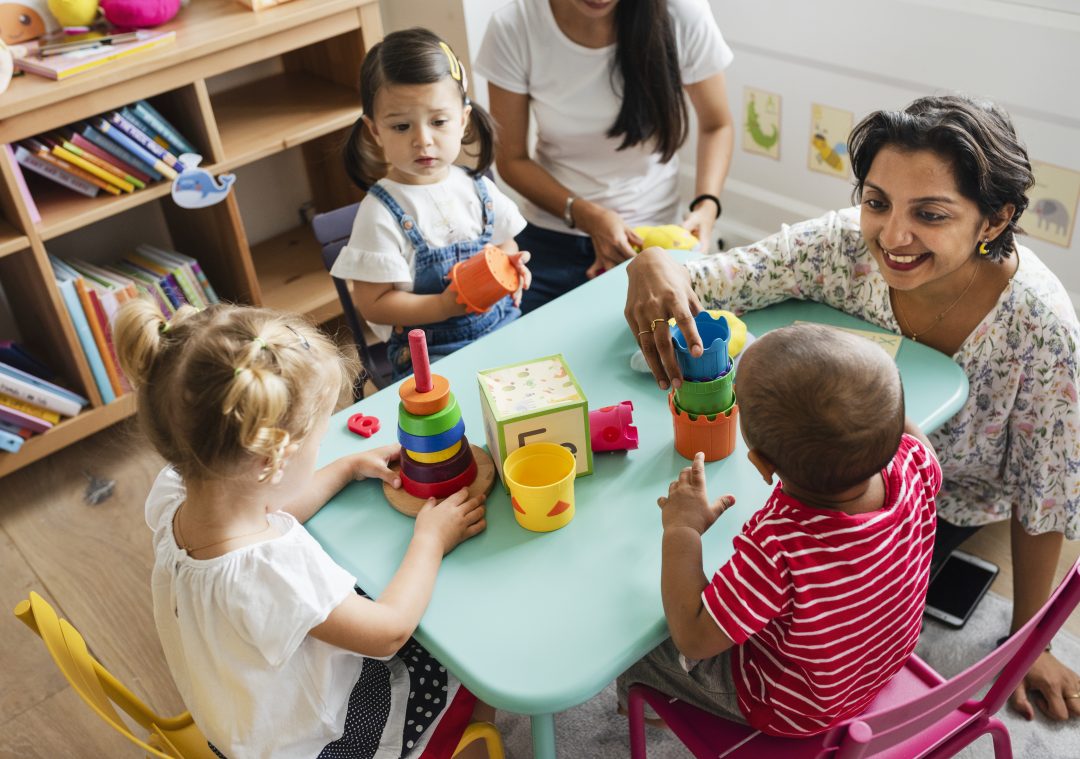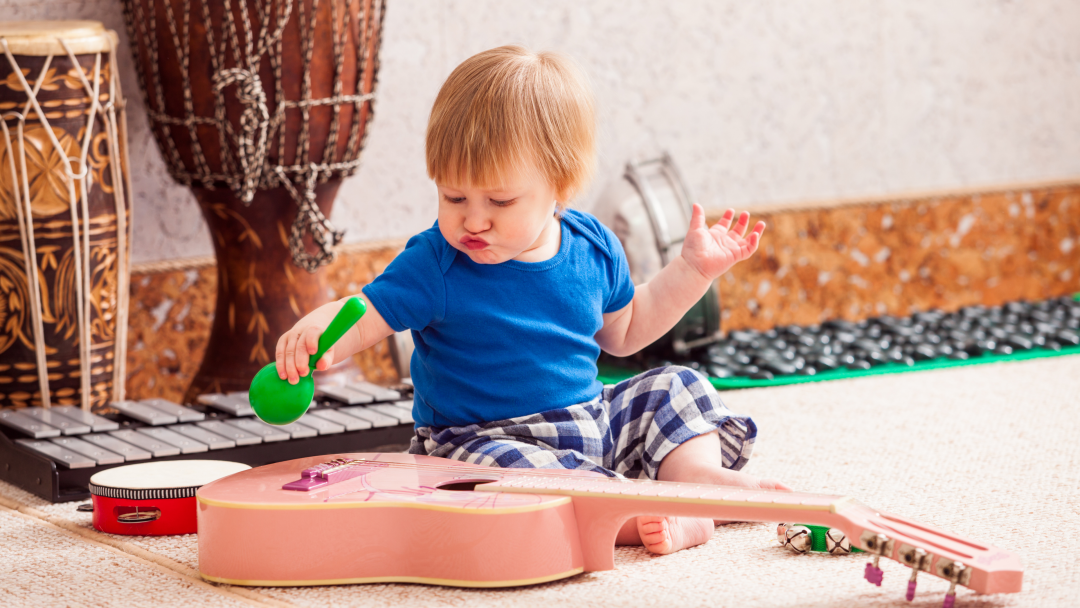NEW from Nathan Wallis: Five surprising ways you can facilitate your baby’s brain development
Categories: Developmental Milestones
(4 minute read)
Brains seem so mysterious, don’t they? They’re just these lumps of matter that look like something that’s washed up on the beach, yet they’re responsible for so much of how we operate as humans. We’ve all got one, but a lot of us are still pretty unfamiliar with how they work, let alone how they develop. But, in the last twenty years or so, our understanding of brains has come a long way and we now know a lot more about how our brains influence our behaviours. This is where Nathan Wallis comes in, who describes himself as a ‘neuroscience educator’. We describe him as a blessing, because frankly, that stuff is gibberish for those of us not in medicine or science.
Nathan’s talent is for distilling complex research into clear takeaways for parents, educators and anyone else involved in the care of children. He does the hard yards, interpreting and analysing the research, then tells us the bits that apply to our lives, our kids and their development. As diehard Nathan Wallis fans will know (and we know there are MANY of you in our ParentTV community!) Nathan is particularly interested in the first 1000 days of a baby’s life. He even contributed a chapter on this exact topic to our recent book, Parents, this is the one thing you need to know. We’ve got a HEAP of new content from Nathan on the site, so we thought it would be a good time to explore it, starting with these somewhat surprising ways you can help facilitate your baby’s brain development. Here goes:
- Let them lead the conversation
‘If I had to choose one key word to sum up what is pure gold when it comes to baby’s brain development, I’d say responsiveness…’
NATHAN WALLIS
But what does this actually mean in practice? Well, it’s always good to talk to your baby, but what really stimulates them is when you don’t just talk to them but instead respond to their cues. When your baby makes a noise, imitate it to them. They will see that you have listened to them and responded, then they’ll imitate you. Letting them take the lead in the ‘conversation’ in this way engages their brain more than just chatting at them and it’s instructive, too – this is actually how they learn 90% of their language.
- Let them do things in their own time
We’ve all had that nosy relative or neighbour shake their head when we tell them our baby isn’t walking yet and can’t recite the Greek alphabet, either. This is because of the supposed milestones that dictate what our babies are meant to achieve by certain ages. But, we shouldn’t assume that it is better for babies to achieve certain milestones (like walking and talking) faster,
‘How quickly a child reaches their milestones actually has a lot more to do with things like their gender and birth order than intelligence.’ Furthermore, you don’t need to push them to achieve these standards either. You get better overall development by supporting the baby to be in charge of their own development. Don’t get caught up in the race to achieve milestones, as the quality of the journey to achieving them is much more important than when they are achieved.
NATHAN WALLIS
- Be there (fully)
What makes my baby brainy? The simple answer to this question is that having your face in front of your baby and working in partnership with them is the number one thing that will help facilitate your baby’s brain development, according to Nathan.
‘The more you’re in partnership with them, the more interactive and responsive you are, the more minutes per day you have your face in front of your baby’s in those first 1000 days of their life, the brainier they’ll probably be.’ Being fully present in this intentional way also helps your baby to learn focussing skills that will stand them in good stead later in life.’
NATHAN WALLIS
If you make a point of being with your baby, looking at them, connecting and avoiding other distractions, your sustained attention at these times will actually teach them how to sustain their attention, too. Wondering how long to do it? Be directed by them and stop when they want to stop, suggests Nathan. ‘Holding an interaction with your baby until they no longer want it establishes really good habits that will set them up for better social and academic skills and emotional regulation down the track.’
- Speak in multiple languages if possible
While we used to think that a second language spoken at home should only be introduced when primary language skills were embedded, we now know this is a load of nonsense, thank goodness. Babies’ brains have some unique capacities for language and these can be hugely beneficial for them, to the point that ‘It’s almost bordering on neglect when we don’t expose babies to more than one language!’ Nathan says.
In an earlier video for PTV, ‘What does a neuroscience expert want his grandchildren to do to boost their brains?’ Nathan listed bilingualism as one of his ideal scenarios for the optimum brain development in his own grandkids, and he expands on this idea in ‘Can I speak to my baby in a different language?’ saying that ‘Any naturally occurring languages in your baby’s home will be brilliant for them.’ A central cognitive advantage of bilingualism is in the area of executive functioning, meaning that children who have been brought up as bilingual will be better able to transfer their attention, problem-solve and switch between tasks.
- Expose them to music and rhythmic patterning
‘Babies respond to tones from the moments they’re born, so music seems to be encoded in the brain,’ Nathan says. ‘You can’t sing to your baby too much, even if you’re not a great singer.’ Just as well, for some of us! PTV favourite and neurologic music therapist Allison Davies has a lot of content on this subject if you want to delve in further, but for now, know this – music is the key to language development in babies.
‘When we sing, we’re lengthening words so that babies can hear the pronunciation of words more clearly. You can sing anything to them, sing it when you tell them you’re going to change their nappy. This is very beneficial to their language development and overall brain development.’
NATHAN WALLIS
In this same vein, rhythmic patterning, (rocking your baby to soothe them) is also important for their brain development. In the simplest terms, your baby needs you to provide an input of a steady rhythmic pattern to build their cerebellum, which needs to be developed in order for their frontal cortex to come online later. This is called the neurosequential model of brain development, and you can find out more about it in another of Nathan’s videos, ‘Four brains: the simple explanation of human brain development.’
Righto. Did you get all that? All you need to do is be responsive, be available, be present, be in partnership, give them time, speak another language if you can, sing to them (even if you can’t) and rock them! It sounds like a lot, but you were probably going to do all of this anyway. Parents, as always – you’ve got this.
P.S. Want to know the LEAST surprising thing you can do to help facilitate your baby’s brain development? It’s the dyad relationship, and you can learn more in this blog!











